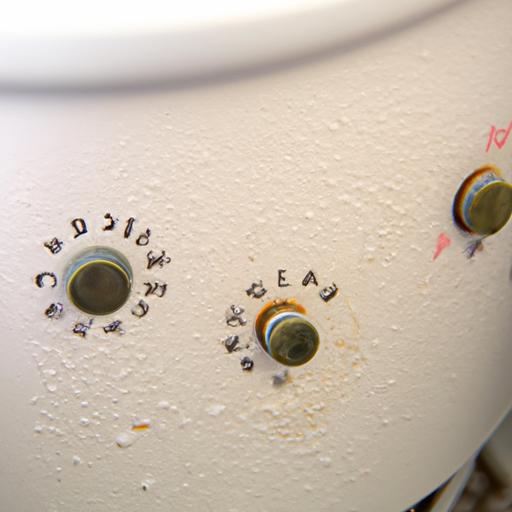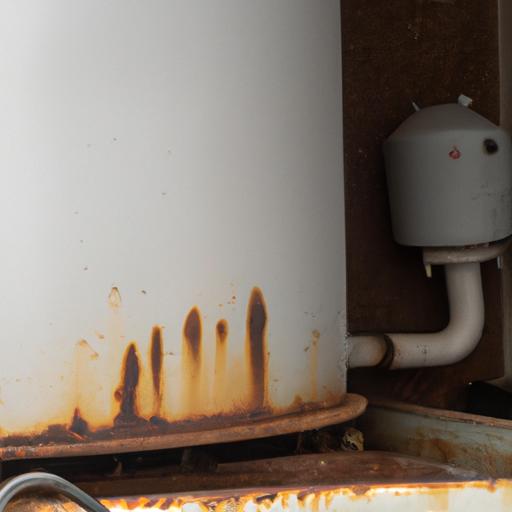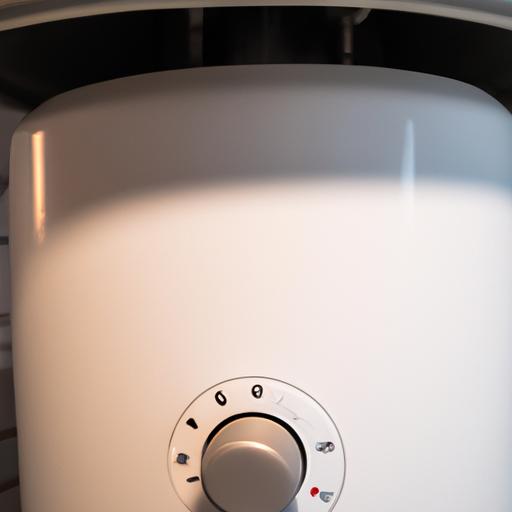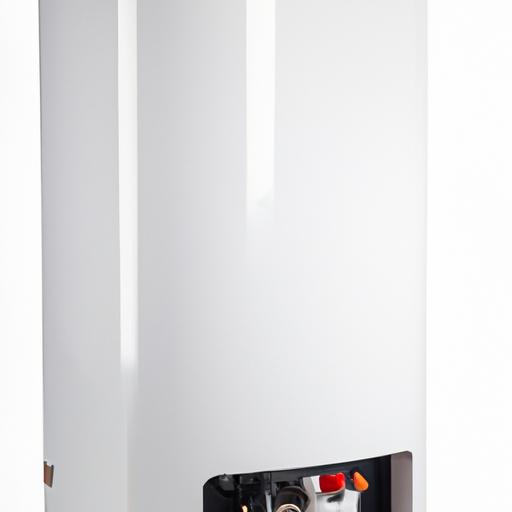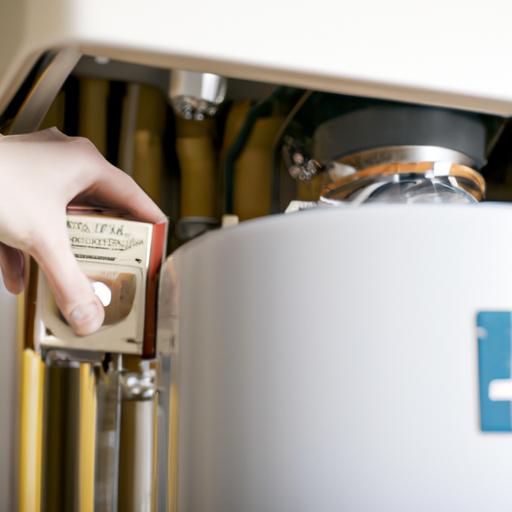Introduction

Water heaters are the unsung heroes of our daily routines, providing us with warm showers, clean dishes, and cozy homes. We often take them for granted, but have you ever considered the potential risks they pose? In this article, we will delve into the world of water heater bursts and shed light on the importance of understanding and preventing this potential catastrophe.
Water heater bursts can lead to significant damage, ranging from flooding to property destruction. Picture this: a burst water heater gushing forth like a wild river, wreaking havoc in its wake. It’s a scene nobody wants to encounter. But fear not! By familiarizing ourselves with the causes, maintenance, and preventive measures, we can mitigate the risks and ensure our homes remain safe havens.
Did you know that a staggering 75% of water heater failures are caused by leaks or bursts? These unpleasant surprises often occur due to various factors, such as excessive pressure, sediment buildup, or simply old age. However, being aware of the warning signs and taking proactive steps can save us from the nightmare of a burst water heater.
So, my friend, join me on this journey as we unravel the mysteries of water heater bursts. I will equip you with the knowledge to protect your home, your belongings, and most importantly, your peace of mind. Let’s dive in and understand the causes, prevention, and steps to take should disaster strike. Together, we will conquer the threat of water heater bursts and emerge as savvy homeowners.
Stay tuned for the following sections, where we will discuss the causes behind water heater bursts, the importance of maintenance and inspection, immediate actions to take, preventive measures, and the significance of prioritizing safety. Are you ready to become a water heater burst expert? Let’s get started!
Understanding the Causes of Water Heater Bursts
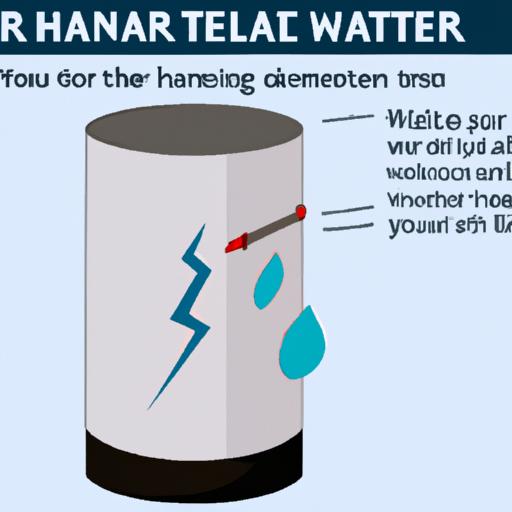
Common Reasons behind Water Heater Bursts
Water heater bursts can occur due to a variety of factors, often resulting from neglect or gradual wear and tear. Let’s explore some common causes behind these disastrous events:
- Excessive Pressure: Over time, water heaters may experience a buildup of pressure, especially if they lack the necessary safety valves or pressure relief devices. As pressure continues to rise, the tank becomes vulnerable, and the risk of a burst increases significantly.
- Sediment Buildup: Sediments, such as minerals and debris, can accumulate at the bottom of the water heater tank. As these sediments settle and harden, they create a barrier between the heating element and the water, causing the element to overheat. The excessive heat weakens the tank’s integrity, making it prone to bursting.
- Corrosion: Water heaters, especially older models, are susceptible to corrosion. The constant exposure to water and minerals can lead to rust formation, which weakens the tank’s structure. Corroded tanks become more susceptible to leaks and bursts, posing a significant risk to your home.
Identifying Warning Signs to Prevent Potential Disasters
Prevention is always better than dealing with the aftermath of a water heater burst. By recognizing the warning signs, you can take timely action and avoid potential disasters. Keep an eye out for these indicators:
- Rusty Water: If you notice rusty or discolored water when using hot water, it could be a sign of corrosion inside the tank. This could indicate that your water heater is nearing the end of its lifespan and may be at a higher risk of bursting.
- Strange Noises: Unusual sounds, such as banging or popping noises, coming from your water heater could be an indication of sediment buildup. The presence of sediments can cause erratic heating and increase the chances of a burst.
- Leaks: Any leakage around the water heater, be it from pipes or the tank itself, should never be ignored. Even minor leaks can worsen over time and eventually lead to a catastrophic burst. If you notice any signs of leakage, it is crucial to address the issue promptly.
By understanding the common causes and recognizing the warning signs, you can take proactive measures to prevent water heater bursts. In the next section, we will explore maintenance and inspection tips to ensure the proper functioning of your water heater. Stay tuned!
Maintenance and Inspection of Water Heaters
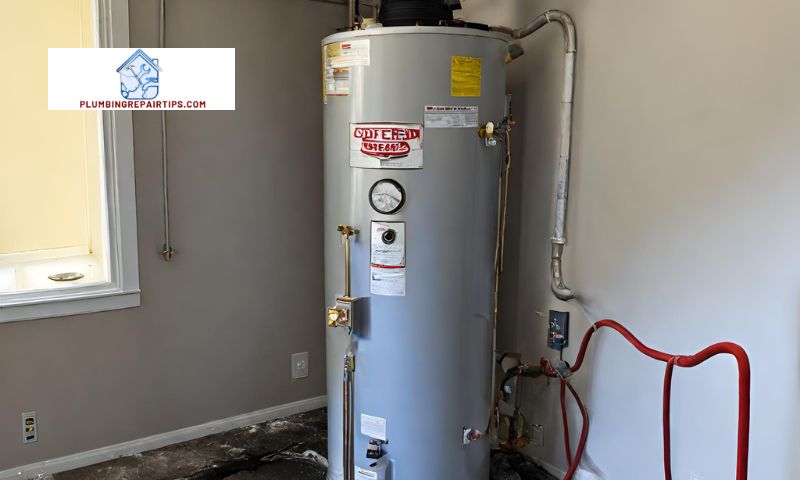
As responsible homeowners, we must prioritize the maintenance and inspection of our water heaters to ensure their proper functioning and longevity. Neglecting these essential tasks can not only lead to decreased efficiency but also increase the risk of a water heater burst. Let’s explore some key maintenance tips and the significance of professional inspection and servicing.
Regular Maintenance Tips to Ensure Proper Functioning of Water Heaters
- Flushing the Tank: Sediment buildup is one of the leading causes of water heater malfunctions. Over time, minerals and debris accumulate at the bottom of the tank, reducing its efficiency and potentially causing overheating. Regularly flushing the tank helps remove this sediment, improving performance and preventing potential bursts. Remember, a clean tank is a happy tank!
- Testing the Pressure Relief Valve: The pressure relief valve is a crucial safety feature that prevents excessive pressure buildup. It’s essential to test this valve at least once a year to ensure it’s functioning correctly. Simply lift the valve’s lever and listen for the sound of water flowing. If it doesn’t release water or the valve is faulty, it’s time for a replacement.
- Inspecting the Anode Rod: The sacrificial anode rod plays a vital role in protecting the water heater from corrosion. Over time, this rod deteriorates, sacrificing itself to prevent damage to the tank. Regularly inspecting the anode rod and replacing it when necessary can significantly extend the lifespan of your water heater.
Importance of Professional Inspection and Servicing
While regular maintenance performed by homeowners is essential, it’s equally important to seek professional inspection and servicing for your water heater. Here’s why:
- Expertise and Experience: Professional plumbers possess the knowledge and experience to detect potential issues that may go unnoticed by homeowners. Their trained eyes can identify warning signs, such as leaks, faulty valves, or deteriorating components, before they escalate into bigger problems.
- Efficiency and Safety: A professional inspection ensures that all components of your water heater are functioning optimally. This includes checking the thermostat, electrical connections, gas lines (if applicable), and overall safety features. By addressing any underlying issues, professionals help maintain efficiency and reduce the risk of a catastrophic water heater burst.
Remember, prevention is better than cure. By following these maintenance tips and seeking professional inspection, you can ensure your water heater operates smoothly and minimize the chances of a burst. Now that we understand the importance of maintenance and inspection, let’s move on to Section IV, where we will discuss the steps to take in case of a water heater burst. Stay tuned!
Steps to Take When a Water Heater Bursts
When disaster strikes and your water heater bursts, swift action is crucial to minimize damage and ensure the safety of everyone involved. Here are the immediate steps you should take:
Immediate Actions to Minimize Damage
- Shut off the power: In the event of a water heater burst, the first and most important step is to cut off the power supply. Locate the circuit breaker or the gas supply valve and turn it off to prevent further complications.
- Turn off the water supply: Locate the water shut-off valve, typically found near the water heater or at the main water source. Turning off the water supply will halt the flow of water and prevent further flooding.
- Protect yourself and your belongings: Safety should be your top priority. If the burst has caused significant flooding, ensure everyone evacuates the area and avoid contact with any electrical components that may be submerged. It’s also advisable to move any valuable items or furniture away from the affected area to prevent further damage.
Contacting Professionals for Assistance and Repair
- Reach out to a professional plumber: After taking immediate actions to minimize damage, it’s crucial to contact a licensed plumber as soon as possible. They have the expertise and necessary equipment to assess the situation, repair or replace the water heater, and restore your water supply safely.
- Document the incident: To ease the insurance claim process and provide evidence of the damages incurred, take photos or videos of the burst water heater and any resulting damage. These records will assist both the plumber and your insurance provider in understanding the extent of the incident.
Remember, attempting to fix the burst water heater on your own may lead to further complications or even personal injury. Leave the repairs to professionals who have the knowledge and experience to handle such emergencies effectively.
By taking these immediate actions and involving experts in the restoration process, you can mitigate the damage caused by a water heater burst and ensure the safety and well-being of everyone involved. Stay prepared and act swiftly when faced with such a situation to minimize the impact on your home and peace of mind.
Conclusion
Water heater bursts can be disastrous, causing extensive damage to our homes and belongings. However, by understanding the potential risks, implementing regular maintenance, and taking preventive measures, we can significantly reduce the likelihood of such incidents occurring.
Throughout this article, we have explored the importance of water heaters in our everyday lives and the potential risks associated with water heater bursts. We have learned about the common causes behind these bursts and the warning signs that can help us identify potential problems before they escalate.
Regular maintenance and inspection of water heaters are crucial in ensuring their proper functioning and longevity. By scheduling professional servicing and performing routine tasks such as flushing the tank and checking for leaks, we can extend the lifespan of our water heaters and minimize the risk of bursts.
In the event of a water heater burst, it is essential to act swiftly. By immediately shutting off the water supply, electricity, and gas, we can mitigate further damage and ensure the safety of ourselves and our homes. Seeking professional assistance for repair and restoration is crucial to prevent any long-term consequences.
To avoid water heater bursts altogether, we should consider preventive measures such as installing safety valves and pressure relief devices. These mechanisms help regulate the pressure within the tank and prevent excessive build-up, reducing the risk of bursts. Additionally, regularly monitoring water pressure and temperature can provide early indications of potential issues, allowing us to address them promptly.
In conclusion, water heater bursts are not something to be taken lightly. By prioritizing regular maintenance, being vigilant for warning signs, and implementing preventive measures, we can safeguard our homes from the devastating consequences of a burst water heater. Remember, prevention is key! Stay proactive, stay safe.
Thank you for joining me on this journey to explore the world of water heater bursts. I hope the insights and knowledge shared in this article will empower you to protect your home and loved ones. For more plumbing repair tips and expert advice, visit plumbingrepairtips.com. Stay informed, stay prepared, and stay ahead of any potential water heater disasters.
